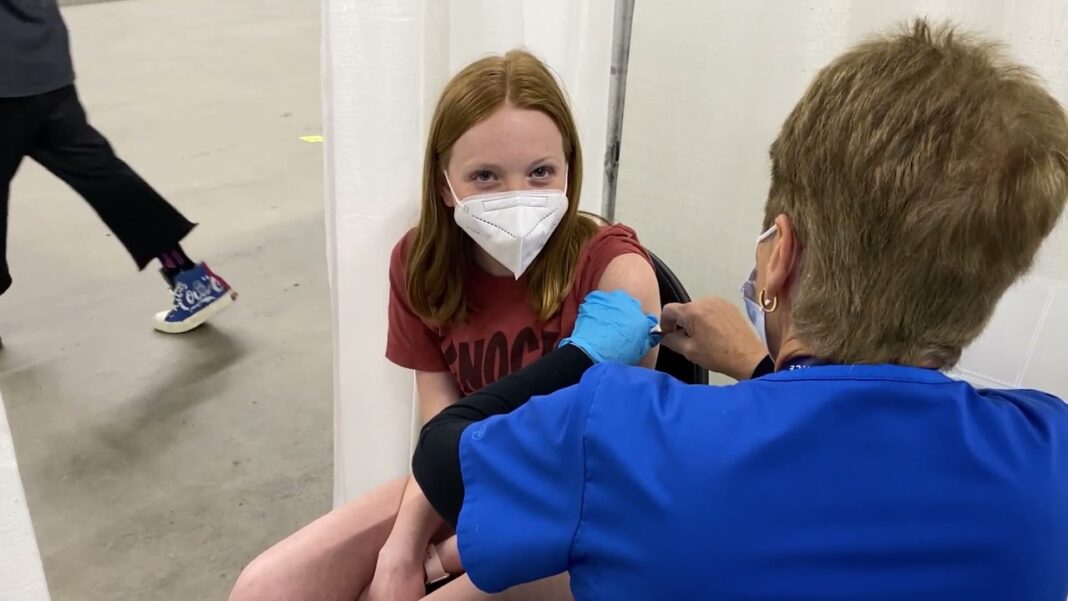
Cases of rare vulvar ulcers have been diagnosed in adolescent girls after receiving a second dose of the Pfizer messenger RNA (mRNA) shot, according to the April edition of the Journal of Pediatric & Adolescent Gynecology.
Six cases of adolescent girls ages 12 to 16 developing painful genital ulcers within four days of their second vaccine dose were reported in the medical journal, including two cases occurring after infection with COVID-19.
This is the first time that cases of vulvar ulcers in adolescents and young women are being addressed and discussed in the medical literature.
Doctors of these cases say that it is “important to identify and explain possible adverse effects to help dispel the hesitancy some patients might feel about receiving a novel vaccine.”
The vulvar ulcers—known as vulvar aphthous ulcers, lipschütz ulcers, or acute genital ulcerations—are non-sexually acquired painful lesions formed on the external structures of the female genitalia, or the vulva. The condition mainly affects adolescents and young women, but cases of older women have also been reported.
Unlike mouth sores which are an established adverse reaction of certain vaccines, including the COVID-19 injections administered in the United States, vulvar ulcers are not.
A simple search on the Vaccine Adverse Event Reporting System (VAERS) for aphthous ulcer, vaginal ulceration, vulval ulceration, and Pfizer COVID-19 vaccine, resulted in 282 total events as of April 14.
Of those, over 40 reports were related to genital ulcers in adolescents and young women several days after the second Pfizer shot, while the rest were reports of mouth ulcers. Several cases have also occurred following the first and third dose.
The youngest to experience the vulvar ulcers was a 10-year-old girl from North Carolina, who developed several painful lesions 24 hours after her second Pfizer injection on Jan. 29, 2022, [VAERS ID number: 2087752-1]. She tested negative for the herpes simplex virus. The report did not mention whether a COVID-19 test was administered.
The Centers for Disease Control and Prevention (CDC) cautions that reports made to VAERS do not necessarily prove causation.
“While very important in monitoring vaccine safety, VAERS reports alone cannot be used to determine if a vaccine caused or contributed to an adverse event or illness,” the CDC wrote.
By Meiling Lee






